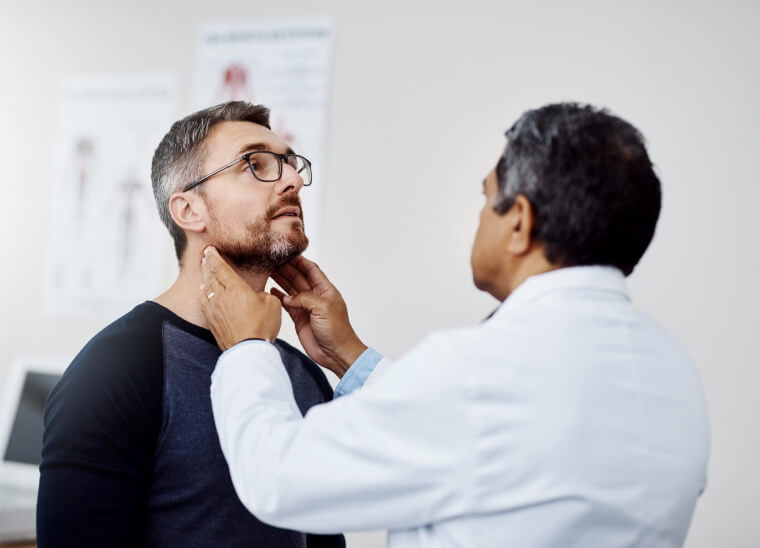This year, National Men’s Health Week begins on June 14. This week highlights awareness of preventable health problems among men.
Use this week to book that doctor’s appointment you’ve been meaning to schedule or to encourage the men in your life to be proactive about looking after their health.
Take a look at the list below to familiarize yourself with some of the common employee health screenings available for men (then get to scheduling!).
MEN’S HEALTH SCREENINGS: WHEN TO SCHEDULE THEM (AND WHY)
Prostate Cancer. Prostate cancer often grows slowly, meaning screenings can help with early detection. For men interested in getting screened, there are two types of prostate screenings: the prostate-specific antigen (PSA) blood test and the digital rectal exam (DRE). It’s recommended that screening begin at age 50 for men who are at average risk for developing prostate cancer, age 45 for men who are at high risk, or age 40 for men at even higher risk (typically when more than one first-degree relative was diagnosed with prostate cancer at an early age).
Colonoscopy. According to the Centers for Disease Control and Prevention (CDC), as many as 60 percent of colon cancer deaths could be prevented if everyone aged 45 and above underwent colonoscopies. It’s recommended that, beginning at age 45, men undergo a colonoscopy every ten years, but the findings of a colonoscopy may dictate when your next one should be scheduled.
Depression. An estimated six million men suffer from depression each year, many of whom are under-diagnosed or under-treated. You can talk to your primary care provider about getting screened for depression if you have experienced symptoms like significant changes in your appetite or sleeping patterns, feelings of hopelessness, or decreased motivation that have lasted for more than two weeks. (Please note: if you have recurring thoughts of death or suicide, reach out for help from your healthcare provider immediately.)
Cholesterol. Cholesterol levels are crucial to determining your risk for heart disease. All men 35 or older should get their blood cholesterol levels checked regularly. If you have risk factors like obesity, diabetes, a history of tobacco use, or a family history of heart attack before the age of 50, your cholesterol should be checked earlier, around the age of 20. If you get a yearly physical, a cholesterol screening is included in your routine blood work.
Blood pressure. Most doctors perform a blood pressure screening each year at your annual physical. A healthy blood pressure, typically, is below 120/80. High blood pressure can increase your risk of heart attack and stroke, as well as long-term risks like heart or kidney disease. No matter what your age, every man should have their blood pressure checked regularly.
Abdominal Aortic Aneurysm. An Abdominal Aortic Aneurysm (or AAA) is caused by an enlarged blood vessel in the stomach that ruptures suddenly and is fatal in up to 90 percent of cases. An ultrasound can detect a AAA before it ruptures. This is recommended for men who are 65 years or older who have a history of smoking and for men aged 55 or older who have a family history of AAA.
Testicular Self Exams. Testicular Self Exams (TSE) can begin at age 15, but doctors and medical organizations differ on their recommendations for testicular self-exams. If you’re concerned about your risk of testicular cancer, discuss the issue with your doctor.
Diabetes. If you take medication to control high blood pressure or experience symptoms of persistently severe thirst, frequent urination, unexpected weight loss, increased hunger, and tingling in the hands or feet, talk to your doctor about getting screened for diabetes. The test for diabetes is known as an A1C, or a blood test that measures your blood sugar over the past two or three months.
Your employees can use Eden Health to stay on top of their screenings — keeping them healthy protects your business.
Are you an Eden member? You can always message an Eden provider with questions about any preventative health screenings or tests you should receive. Download the Eden app here.
This blog is intended to be informational in nature. The information and other content provided in this blog, or in any linked materials, are not intended and should not be construed as medical advice, nor is the information a substitute for professional medical expertise or treatment.
If you have any questions or concerns, please talk to your Care Team or other healthcare provider. Never disregard professional medical advice or delay in seeking it because of something you have read on this blog or in any linked materials.





